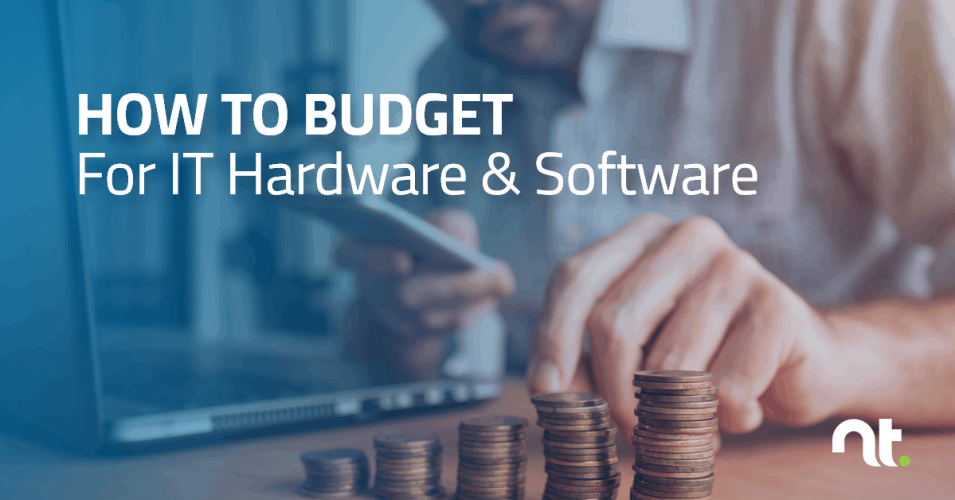How to Budget for IT Hardware & Software

Trying to secure a maximum amount of dollars to cover any unforeseen issues with your technology is the wrong approach and rarely adopted by any long-lasting business. Your IT budget should be based on a clear cut technology strategy supported by real numbers. For example, if you’ve proposed a project like migrating a complex server infrastructure to the cloud, you can easily highlight the operational savings and tangible efficiencies as justification for an increase in expenses.
Every line on your IT Hardware & Software budget should tell a story that maps back to your business objectives, to numbers and to your technology strategy. The work required to justly tell this story will vary depending on the complexity and sophistication of your environment, the size of your organization and projected short term growth, and your long term business goals. Below is a high level example on how to achieve Hardware/Software IT budgeting success:
- Identify the set of hardware or software that need to be upgraded or replaced
- Will your projected revenue growth model be limited if you maintain the same hardware or software framework?
- Determine the criticality of that hardware or software
- If downtime were to occur due to aging hardware malfunctions or software end of life (EOL) support, how much would this impact your business
- Refer to https://www.nexustek.com/blog/are-you-prepared-for-business-downtime/ to assist with calculating downtime
- It’s best to connect this section to specific dollar amounts & KPIs
- If downtime were to occur due to aging hardware malfunctions or software end of life (EOL) support, how much would this impact your business
- Determine the security risks of the hardware or software
- What is the likelihood that a hacker would enter your infrastructure through aging hardware or out-of-support software? (This will most likely need to be answered by an IT professional)
- How will an upgrade or replacement positively affect your business in terms of efficiencies and reduction of downtime?
- It’s best to connect this section to specific dollar amounts & KPIs
- Can new technology be introduced to reduce your hardware footprint and further optimize IT processes?
- Consult with your Account Manager at NexusTek to put together a plan to be used for budget proposals.
Why does IT budgeting matter?
Without the appropriate budgeting and planning, your overhead will be significantly impacted when you are forced to request and justify expenditures on a reactive basis. IT spending and project planning that takes business goals into consideration starts with a set Managed Services Plan for consolidation and transparency.
- Similar to a project plan or road-map, using a strategy for your 2020 IT budget provides a holistic view of your department and its funding requirements. It lets you quickly determine whether resources are over-committed in one area or another.
- The budget is a tool that can help prioritize your IT initiatives and validate your ROI. If one of your proposed initiatives is a move to mobile apps, but your hiring and training budgets are minuscule, you’ve likely set yourself up for failure before you’ve even started.
- Identify areas where you may be overspending. A disproportionally high software budget might reveal that you’re spending on unused or unneeded software licenses or on support expenses for an older version of a tool, when a hardware refresh or a cloud migration may be a better return on your investment.
Presenting your IT budget as the mechanism that runs your organization is the mindset of every successful business which is a far cry from 10 years ago when IT professionals were in the background. Building in your IT budget as an overall business strategy is imperative.
Schedule a free consultation with one of our experts to discuss your budget strategy for 2020.
We can help you identify gaps in your plan, cost-savings, and more.



